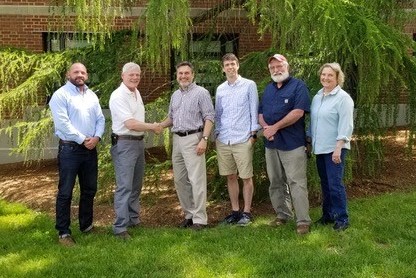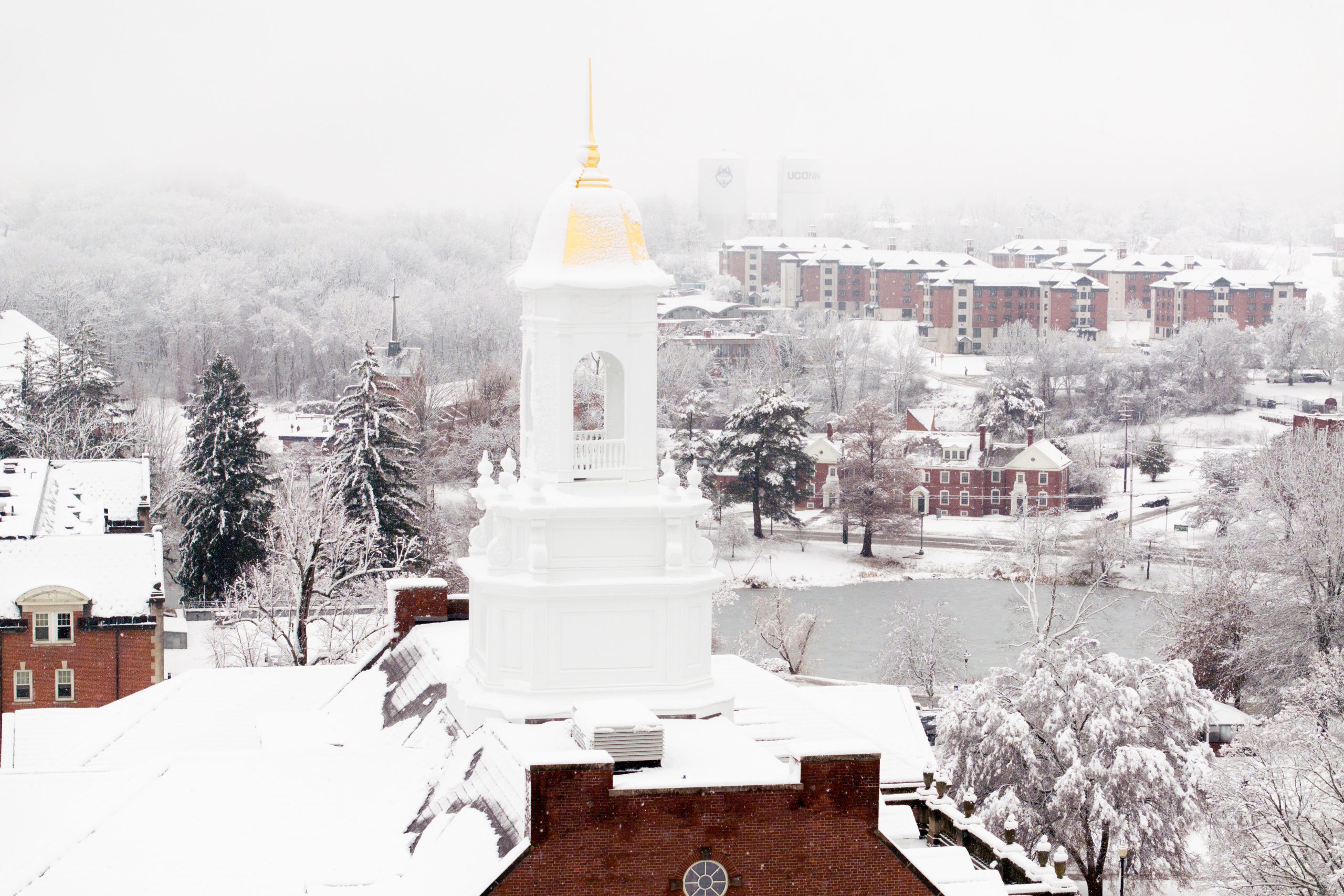A new major in urban forestry and arboriculture, to be offered for the first time in fall 2020 by the Ratcliffe Hicks School of Agriculture, will train skilled employees for an industry with an aging workforce.
“This major was developed in response to a need in the industry,” says Jason Vokoun, professor and head of the Department of Natural Resources and the Environment (NRE). “As Connecticut has suburbanized, much of the work in our state is now centered around areas where human development and infrastructure meets forest, such as power lines, highway shoulders, around houses and buildings, in parks, really any place the human footprint interacts with trees.”
“I’m excited to add an academic program that complements our excellent extension and research work in this area. This is fulfilling our mission as the state’s land grant university by connecting people with careers, then serving that workforce with ongoing education and support.”
“We are very enthusiastic about adding this new major to the Ratcliffe Hicks School of Agriculture portfolio, joining our other two-year offerings in plant science and animal science,” says Sandra Bushmich, associate dean for academic programs and director of the Ratcliffe Hicks School. “We are especially pleased that we can respond to the workforce needs of an important Connecticut and regional industry while expanding opportunities for our students.”
The Connecticut Tree Protective Association (CTPA), an industry group whose members range from sole proprietors to larger tree companies and public utilities, was instrumental in helping to develop and support the new major, citing the need in the industry for employees who have enthusiasm for working outdoors along with the necessary academic background to grow in responsibility throughout a career.
“Through donations to the UConn Foundation, the CTPA is generously supporting instruction in two new key courses to get this major off the ground initially, and we will work together to build an endowment to sustain it over the long term,” notes Vokoun.
“We’re stimulating an interest in the industry and preparing the students prior to enter the workforce,” says Allan Fenner, CTPA president and consulting arborist with SavATree. “We’ve had many conversations over the past few years concerning the shortage of people entering the field. We need young people to enter the industry and be that workforce of young climbers with knowledge of tree physiology, pruning and tree biology, while knowing how they are affecting the life of a tree.”
Fenner is quick to point out that there are many career opportunities within the industry. “We helped outline the courses to provide a basic framework so students have the skills necessary to develop into the industry. They should not have a problem obtaining employment. We are interested in having this program sustained at the University of Connecticut as we were lacking schools with a concentration in arboriculture and urban forestry. We want this to be the place to go in Connecticut for this particular interest.”
The first class will enter the program in fall 2020 and will graduate with an Associate of Applied Science degree and the skills necessary to pass the Connecticut arborist license exam. The two-year program includes courses in plant science, arboriculture, urban forestry, pest control, dendrology, agribusiness and agricultural mechanics and provides opportunities for students to obtain college credit through a professional internship with a tree company in the area.
“UConn’s tree and plant diversity provides a perfect setting for arboriculture students,” says John Kehoe, UConn arborist and arboriculture instructor in the new major. “It serves as a living laboratory for this course. It is a great opportunity to offer our students real-life experiences on the care and maintenance of trees.”
“It’s important to note that this type of work is done throughout the state in both rural and urban settings,” says Vokoun. “We’re keen on developing cohorts of students that have more diverse backgrounds than those traditionally going into the field of forestry. This is an opportunity for individuals from urban centers who may not have thought of forestry as an option for them to work in the industry, with opportunities for employment right back in their home communities.”
Students that excel in the program may also choose to continue their education toward a BS in natural resources with a forest resources concentration or one of the many other majors offered by the College of Agriculture, Health and Natural Resources.


